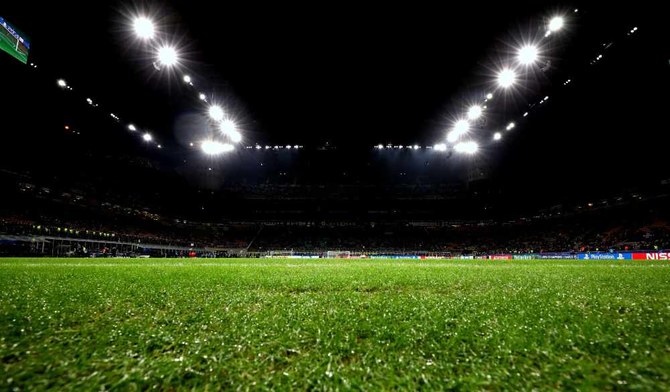The Premier League is known for its exciting matches, superstar players, and incredible competition. However, behind the scenes, clubs must follow financial rules to ensure fair play and avoid financial trouble. One of these rules is the Profit and Sustainability Rules (PSR), which has been in place since the 2015-16 season. These regulations are designed to prevent clubs from spending more than they can afford, keeping the league financially stable.

What Are the Profit and Sustainability Rules?
The PSR rules limit how much money clubs can lose over a three-year period. Currently, clubs are allowed to lose up to £105 million during this time. If they exceed this limit, they could face punishments like fines, points deductions, or even transfer bans.
These rules aim to:
- Prevent clubs from going into massive debt.
- Encourage responsible spending.
- Ensure fair competition between teams with different budgets.
Why Are PSR Rules Important?
Football is an expensive sport. Clubs spend millions on players, wages, and agents’ fees. Without financial rules, some clubs might overspend and struggle to stay in business. The PSR rules help keep clubs financially healthy and maintain a level playing field.
For example, clubs with rich owners could spend unlimited amounts on players, making it impossible for smaller teams to compete. PSR ensures that all teams follow similar financial guidelines, creating a fairer competition.
Changes on the Horizon: Squad Cost Rules (SCR)
In recent months, the Premier League has been discussing a new financial regulation called Squad Cost Rules (SCR). Unlike PSR, which focuses on overall losses, SCR would limit how much clubs can spend on player wages, transfers, and agents’ fees.
The proposed SCR rules would:
- Limit club spending to 85% of their total revenue.
- Introduce an “anchoring” system, meaning clubs can only spend five times the revenue earned by the lowest-earning Premier League team.
- Align the Premier League’s financial rules more closely with UEFA’s Financial Sustainability Regulations, which cap spending at 70% of revenue.
Why Are Clubs Divided on These Rules?
Not all clubs agree with these financial regulations. Some believe that PSR is too strict and stops ambitious clubs from growing. Others argue that SCR would be even more limiting, especially for teams with wealthy owners who want to invest heavily in new players.
Clubs That Support PSR
Some smaller clubs and mid-table teams support PSR because it helps them compete against richer teams. They believe that limiting excessive spending keeps the league fair.
Clubs That Criticize PSR
Bigger clubs like Manchester City, Newcastle United, and Aston Villa have spoken out against PSR. They argue that it prevents them from spending more money to strengthen their squads. These clubs want more financial freedom to compete at the highest level, especially in European competitions.
What Happens Next?
During a meeting in London, Premier League clubs decided to keep PSR for at least one more season. While they are still discussing SCR, they agreed that it won’t be ready in time for next season. This means that clubs must continue following the £105 million loss rule until further notice.
Although no official vote was taken, Premier League officials confirmed that discussions around SCR would continue, and a final decision would be made later.
How Will These Rules Affect Premier League Clubs?
1. Clubs Must Be Careful With Spending
Since PSR remains in place, clubs must continue to manage their budgets wisely. Teams that break the rules could face penalties, including fines and points deductions, which could affect their position in the league.
2. Transfer Strategy Changes
Clubs will need to think twice before spending big money on transfers. Instead of signing expensive players, teams might focus more on:
- Developing young talent from their academies.
- Loan deals instead of permanent transfers.
- Free transfers where no transfer fee is involved.
3. Impact on Title Contenders
Big clubs like Manchester City, Arsenal, and Liverpool will have to be strategic with their spending. Since they generate a lot of revenue, they have more room to spend. However, they still need to balance their budgets carefully to avoid penalties.
4. Challenges for Newly Promoted Teams
Teams that get promoted from the Championship will face additional challenges. They often need to invest heavily in new players to stay competitive in the Premier League. But with PSR in place, they must be cautious not to exceed the financial limits.
Manchester City’s PSR Case
One of the biggest controversies surrounding PSR is the case involving Manchester City. The club has been charged with breaching 115 financial rules between 2009 and 2023. City has denied any wrongdoing, but an independent commission held a 12-week hearing on the matter, which concluded in December 2024. A final verdict is expected soon.
If found guilty, Manchester City could face severe penalties, including:
- Heavy fines
- Points deductions
- Transfer bans
- Potential relegation (in extreme cases)
This case is being closely watched by football fans, clubs, and financial experts, as it could set a major precedent for how PSR violations are handled in the future.
The Future of Premier League Financial Rules
The Premier League’s Profit and Sustainability Rules will remain in place for the 2025-26 season, with discussions ongoing about the potential introduction of Squad Cost Rules (SCR). While some clubs support financial restrictions to maintain fair competition, others argue that these rules limit their ability to grow.
As football finances continue to evolve, it will be interesting to see how these regulations shape the future of the Premier League. Clubs will need to adapt, plan wisely, and follow the rules to avoid penalties while remaining competitive.
With PSR still in effect, fans can expect clubs to be more cautious with spending, leading to a different approach in transfers, wages, and squad management. The coming seasons will reveal whether these financial rules help or hurt the competitiveness of the world’s most popular football league.






